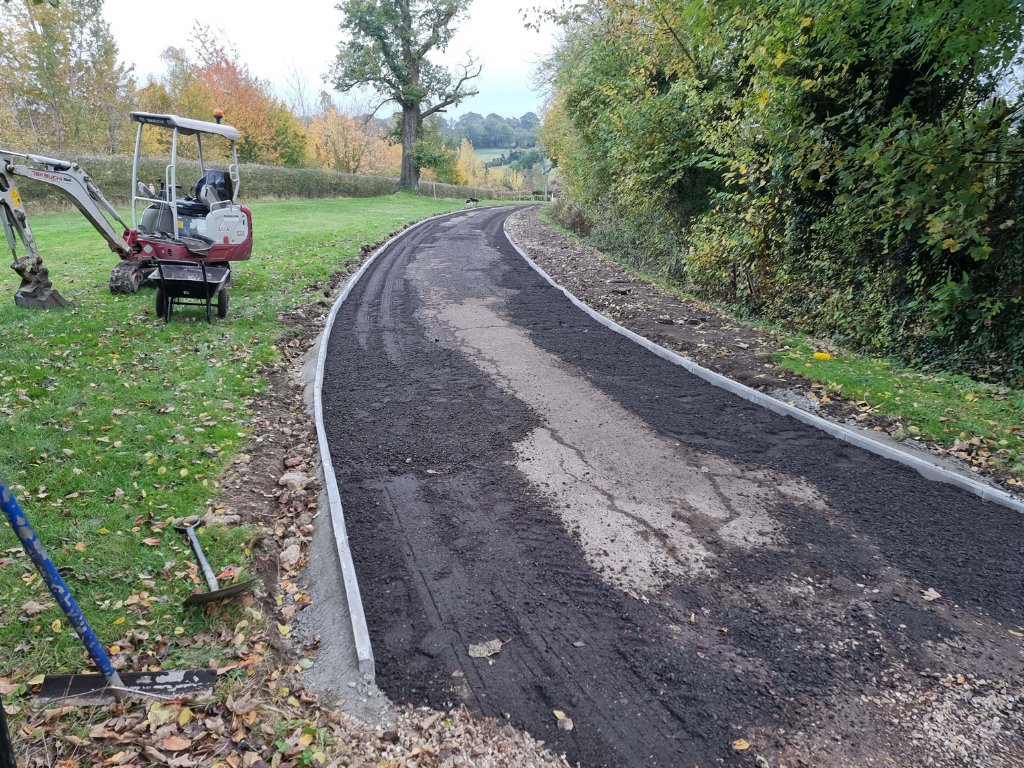Navigating the Path: Grading Best Practices for Agricultural Roads
Introduction: In agriculture, the roads traversing farmland play a critical role in facilitating operations, transportation, and access to various areas of the property. However, these agricultural roads are subjected to heavy loads, frequent use, and the unpredictable forces of nature, making proper maintenance and grading essential for ensuring smooth and safe travel. For farmers and landowners in Ipswich and beyond, understanding grading best practices for agricultural roads is paramount for optimising efficiency, productivity, and overall land management.
The Importance of Grading Agricultural Roads:
Agricultural roads serve multiple functions within a farm or rural property, including:
- Accessibility: Well-maintained roads provide access to fields, pastures, and other areas of the property, allowing for efficient transportation of equipment, livestock, and harvested crops.
- Erosion Control: Properly graded roads help mitigate soil erosion by directing surface water away from sensitive areas and preventing sediment runoff into water bodies.
- Drainage Management: Grading ensures that water is efficiently drained from the road surface, reducing the risk of waterlogging and maintaining optimal soil moisture levels.
- Safety: Smooth, properly graded roads minimise the risk of accidents, equipment damage, and discomfort for operators and livestock during transportation.
Grading Best Practices:
To achieve optimal performance and longevity of agricultural roads, farmers and landowners should adhere to the following best practices:
- Regular Maintenance: Implement a routine maintenance schedule to inspect, grade, and repair agricultural roads as needed, particularly after heavy rainfall or periods of intense use.
- Proper Drainage Design: Design roads with proper camber and cross slope to facilitate water runoff and prevent pooling. Install culverts, ditches, and other drainage features to manage water flow.
- Surface Material Selection: Choose appropriate surface materials such as gravel, crushed stone, or compacted soil based on the intended use, traffic volume, and environmental conditions of the road.
- Compaction and Stabilisation: Compact and stabilise the road surface to improve load-bearing capacity, reduce dust, and enhance overall durability. Consider using techniques such as gravel compaction or surface stabilisation additives.
- Grading Equipment: Use suitable grading equipment such as graders, box blades, or tractor-mounted implements equipped with laser or GPS technology for precision grading and slope control.
- Environmental Considerations: Consider environmental factors such as soil type, topography, vegetation, and proximity to water bodies when planning and grading agricultural roads to minimise ecological impact.
Benefits of Proper Grading:
Adhering to grading best practices for agricultural roads offers numerous benefits for farmers and landowners:
- Improved Accessibility: Well-graded roads ensure smooth and safe transportation of equipment, livestock, and agricultural products, enhancing operational efficiency.
- Reduced Maintenance Costs: Proper grading minimises wear and tear on vehicles and equipment, reducing maintenance and repair expenses in the long run.
- Enhanced Soil Health: Effective drainage and erosion control measures associated with proper grading contribute to soil conservation and fertility, promoting healthy crop growth.
- Increased Safety: Well-maintained roads reduce the risk of accidents, slips, and falls, creating a safer working environment for farm workers and operators.
Conclusion: In the dynamic landscape of agriculture, the condition of agricultural roads can significantly impact farm productivity, efficiency, and safety. By implementing grading best practices, farmers and landowners in Ipswich can ensure that their agricultural roads remain in optimal condition, providing reliable access and support for various farming operations. With proper maintenance, drainage management, and environmental considerations, agricultural roads can continue to serve as vital arteries within the agricultural landscape, facilitating the sustainable stewardship of rural land for generations to come.
Call us on: 01473 943 391
Click here to find out more about Ipswich Driveway Solutions
Click here to complete our contact form and see how we can help with your driveway needs.

